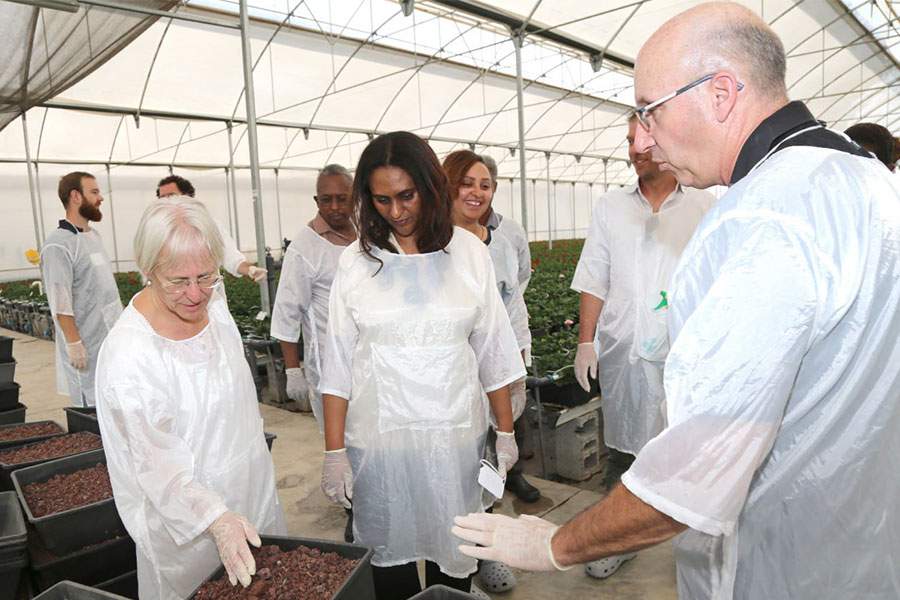
My Opinion | Oct 26,2024
Sep 26 , 2021
Punctuation is part of the essence of communication. It is the difference between getting hired for a job or not, getting the right message across or failing to, and properly utilising a 158 million dollar spacecraft, writes Tadesse Tsegaye (seetadnow@gmail.com), a polyglot with experience in multicultural-cum-institutional settings in resources management.
The most costly grammatical error in history was made when a US space probe, Mariner 1, bound for a Venus flyby, headed off course and had to be destroyed, setting the National Aeronautics & Space Administration (NASA) 158 million dollars when adjusted for inflation. The rocket responded erratically because an anonymous flight computer programmer left out a hyphen from the Mariner’s programming.
Arthur C. Clark, science-fiction writer, called the whole debacle the "the most expensive hyphen in history." The New York Timesheadlined a story they wrote on the Mariner’s failure, ”For Want of a Hyphen Venus Rocket is Lost.”
An old typesetter’s truism for punctuation could have helped the programmers, although computer language is a great deal different from the ones used for communication by humans.
“Set type as long as you can hold your breath without getting blue in the face, then put in a comma; when you yawn, put in a semicolon; and when you want to sneeze, that’s the time for a paragraph.”
Punctuation is a critical part of writing, as is vocabulary and structure. Take periods – which are not always the last thing in a sentence, as when they sometimes come before quotation marks - the importance of which was best described by Isaac Babel, a Russian author.
“No iron can stab the heart with such force as a period put just at the right place,” he once said.
Most people get their introduction to punctuation early in school, as I did in my days at Kes Timheret Bet. The building used for the school was once a mud house that served as someone’s home. The mud walls had survived, but they were run down to the point that they had enough holes in them to serve as a window. The corrugated metal roof was exposed at all times, making the classroom extremely warm. I was a backbencher, and many of us sat on makeshift seats made up of tubes placed on top of stones as support.
The Yeneta, what we called our teachers, read aloud the unusually pronounced Amharic characters, which we had a hard time comprehending in our early days in class. The school presented to me the sight of a bunch of shoulder to shoulder chained kids synchronously shouting strange sounds. The Yenetawas not happy at my inability to catch up with the other students.
Did he remedy this by giving me more attention?
In a way, yes. Every time I missed a beat, he would envelop me with his cracking, unforgiving whip.
The only thing we enjoyed in class was singing. It was only at a certain stage we started articulating notes from a song. The songs not only pronounced the words correctly but also helped us get the feel of the punctuations.
“Temar Lije,” by the late Alemayehu Eshete, is one such song that can help us appreciate the language we speak more thoroughly, including the beats that punctuations are supposed to fill in when it comes to the written word. Alemayehu was a storyteller with distinct characteristics, capturing the zeitgeist of his days and reflecting his time's dominant moods. Sadly, he left us without telling more stories about his days and the inside story of music-making.
It is such exercises – singing to impress the joy of language in children – that will help generations become better writers. Being the essence of communication, writing properly is the difference between being hired or not, getting the right message across or failing to, and properly utilising a 158 million dollar spacecraft. Punctuation is not the whole essence of writing, but it is an indelible part of it.
PUBLISHED ON
Sep 26,2021 [ VOL
22 , NO
1117]


My Opinion | Oct 26,2024

Fortune News | Sep 03,2022

Radar | May 24,2025

Commentaries | Feb 10,2024

My Opinion | Mar 04,2023

Fortune News | Sep 30,2023

Life Matters | Oct 24,2020

Radar | Jun 01,2025

Radar | Jan 27,2024

Advertorials | May 30,2025

Dec 22 , 2024 . By TIZITA SHEWAFERAW
Charged with transforming colossal state-owned enterprises into modern and competitiv...

Aug 18 , 2024 . By AKSAH ITALO
Although predictable Yonas Zerihun's job in the ride-hailing service is not immune to...

Jul 28 , 2024 . By TIZITA SHEWAFERAW
Unhabitual, perhaps too many, Samuel Gebreyohannes, 38, used to occasionally enjoy a couple of beers at breakfast. However, he recently swit...

Jul 13 , 2024 . By AKSAH ITALO
Investors who rely on tractors, trucks, and field vehicles for commuting, transporting commodities, and f...

Oct 18 , 2025
The political establishment, notably the ruling party and its top brass, has become p...

Oct 11 , 2025
Ladislas Farago, a roving Associated Press (AP) correspondent, arrived in Ethiopia in...

Oct 4 , 2025
Eyob Tekalegn (PhD) had been in the Governor's chair for only weeks when, on Septembe...

Sep 27 , 2025
Four years into an experiment with “shock therapy” in education, the national moo...